Ramping Up the Screening Process
We recently had one of those ‘professional’ tenants living in one of our properties. Luckily it was one of my own personally-owned houses and not one of our client’s houses, which probably explains how he slipped through the cracks and was approved in the first place. It was my own lack of following the company’s screening process system that lead to the mistake. In my own desperation to rent one our of own homes before the cold weather hit, I made a quick decision and approved a seemingly nice family on my ‘gut feeling’. In the end it took 4 months of unpaid rent, three court cases; one at the Rental Board and two at Provincial Court and a lot of frustration to finally get them out. The sad part is that the whole situation could have been avoided had I followed the rules, and not my gut.
Once they moved out, I wanted to give a ‘heads-up’ to my friends who are private landlords in the city, so I made a group email including anyone who owned any rental properties in the city and within a matter of 24 hours, I had a complete profile of the tenant. I had a verified copy of his driver’s license texted to me. Someone sent me a full page of the grandfather’s obituary naming all seven children. I received an update from a landlord who happened to be a policeman with a list of pending charges against them (off the record) and full account from the sheriff’s office of all the previous landlords this family had stiffed. I even knew the complete story they were using as to why they were moving on short notice in the middle of the month, which ranged from mold in the house to their current owner sold the house. I knew the schools that the kids were attending and even knew someone who was in the same class as one of the kids. Now, it’s not necessary to gather this much information about a tenant before they are approved, but knowing for sure where they are moving from and getting their previous rental history and financial information is crucial. Also, knowing how many children they have for sure is also somewhat important.
Here are the top 20 Absolute MUST-DO’S when screening and choosing a tenant:
1. Beware of tenants moving on short notice; especially in circumstances where they blame their current landlord for the move. (ie. ‘The landlord is selling.’ ‘The house has mold or mice.’ These are big red flags.)
2. Get a copy of their current driver’s license or some form of photo ID to verify who you are really dealing with.
3. Get a copy of a current utility bill and match up their current address with the correct owner of the property.
4. Call the correct owner or the property manager of that property to investigate the tenant’s history.
5. Google as much information about the person as possible. Ask for the names of the kids and their ages. You may not get all of the kid’s names, however, you’ll get some and they most likely will have Facebook pages too which will lead you to more information.
6. In the case of new immigrants, ask for a Canadian reference – someone who verifies that the information they are providing is correct.
7. Always take applications. Don’t ever rent ‘on the spot’, as I did on that beautiful November day last year when I signed up with the ‘professional tenant’.
8. Take the time to verify the information on the application. The worst tenants look for lazy landlords.
9. Always collect the security damage money BEFORE you give them the keys. Don’t ever just give them the keys on the promise that they’ll bring the damage deposit ‘tomorrow’. Let the tenant know the property is not secured until you get the damage deposit.
10. Don’t go on your gut feeling or whether they look like nice people. Follow a system.
11. Stay connected with other landlords in your area. Find your local landlord support group or club and regularly go to the meetings. Share contact information and make a group email to report any bad tenants circulating around town. Bad tenant lists among landlord associations are frowned upon by government agencies such as the Human Rights Commission and the RTB boards but staying in contact with landlords is totally legal and recommended.
12. Check a prospective tenant’s credit report on Equifax and Report to Equifax if a tenant owes money.
13. Collect post-dated cheques. Sometimes you can clear them even after the tenant have moved out – if the tenant owes you money. A little tip: don’t just go in and deposit it. Take it to the bank and ask the teller to check to see if it will clear. If it won’t, hang onto it and check at a later date.
14. Don’t ignore the signs. Go file an eviction on the first allowable day for late rent, especially if there is no logical explanation as to why they are late in paying. This can be tricky, because the professional tenant uses the best excuses and they are very convincing. However, it is best practices to get the process going the minute you smell a rat! In some cases, just starting the eviction process fixes the problem and the tenants pay up and learn that they can not play games.
15. Once you have a Rental board case open against a tenant at the RTB you are eligible to have all their previous cases against them to ‘help build’ your case against them. In some jurisdictions, all RTB cases are public information and can be searched at any time.
16. Don’t NOT evict a bad tenant because you are worried about whether they will ‘trash your house.’ YOU MUST evict them! 99% of the time even the worst tenant will not permanently and completely destroy a house. For the most part, tenants know when they have crossed the line and move on.
The just system and the rental boards across the country definitely lean toward the side of the tenant in most hearings. I don’t really understand our ‘tenancy’ justice system. Possibly because we are a country based on ‘social systems’ it is the public’s deep-rooted beliefs are that all landlords must be rich (if they own a rental property) and don’t deserve the same rights when it comes to breaking the law. Unpaid rent or property damage is not treated as criminal behavior. Because it’s not a well-regulated industry, the RTB makes decisions based on ‘he said/she said’.
It’s not a 100% guarantee that every tenant will be perfect but the chances greatly increase the more due diligence a landlord does before signing up for a contractual relationship with these people.
by Kathy Berner






